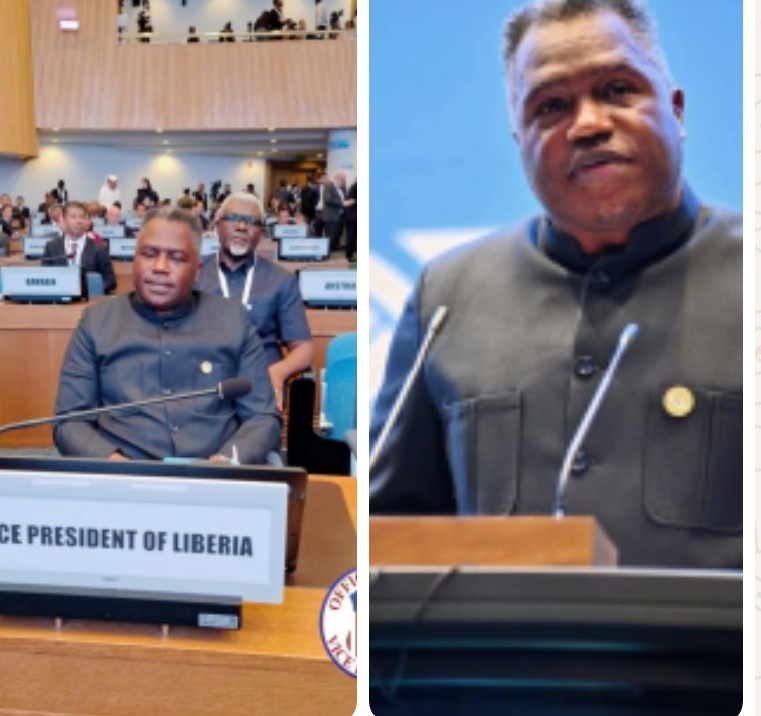By: Geeplay Ezekiel Geeplay |Contributing Writer
Addis Ababa, Ethiopia – July 27-29, 2025- Liberia’s Vice President, Hon. Jeremiah Kpan Koung, Sr., has emphasized the need for sustainable, inclusive, and resilient food systems in Africa, while addressing the United Nations Food Systems Summit (UNFSS+4) in Addis Ababa, Ethiopia.
Speaking on behalf of President Joseph Nyuma Boakai, Sr. and the people of Liberia, Vice President Koung extended warm greetings to the hosts, Ethiopia and Italy, and highlighted Liberia’s commitment to transforming its food systems.
“Liberia recognizes that sustainable transformation requires robust regional cooperation,” Vice President Koung said. “We reaffirm our unwavering commitment to the African Union’s Comprehensive Africa Agriculture Development Programme (CAADP) and its strategic alignment with the Sustainable Development Goals.”
The Vice President outlined Liberia’s National Pathway for Food Systems Transformation, which prioritizes three key areas: Nutrition-sensitive agriculture to combat stunting and malnutrition, Climate-smart agricultural practices developed in partnership with local farmers and cooperatives, Inclusive governance frameworks that meaningfully engage youth, women, and traditionally marginalized communities
Vice President Koung emphasized the critical link between food security and peacebuilding, particularly in conflict-affected and fragile states. “We must honestly ask ourselves: Are our actions effectively addressing the hunger that breeds despair? Are our systems reaching the communities where policy has historically fallen short?”
The Vice President pledged Liberia’s continued support for the UN Food Systems agenda, calling for investments in sustainability, human dignity, resilience, and lasting transformation for future generations.
“Let us invest not only in agricultural yields, but also in sustainability, human dignity, resilience, and lasting transformation for future generations,” Vice President Koung said. “May the spirit of unity and shared purpose guide our deliberations toward meaningful outcomes.”



